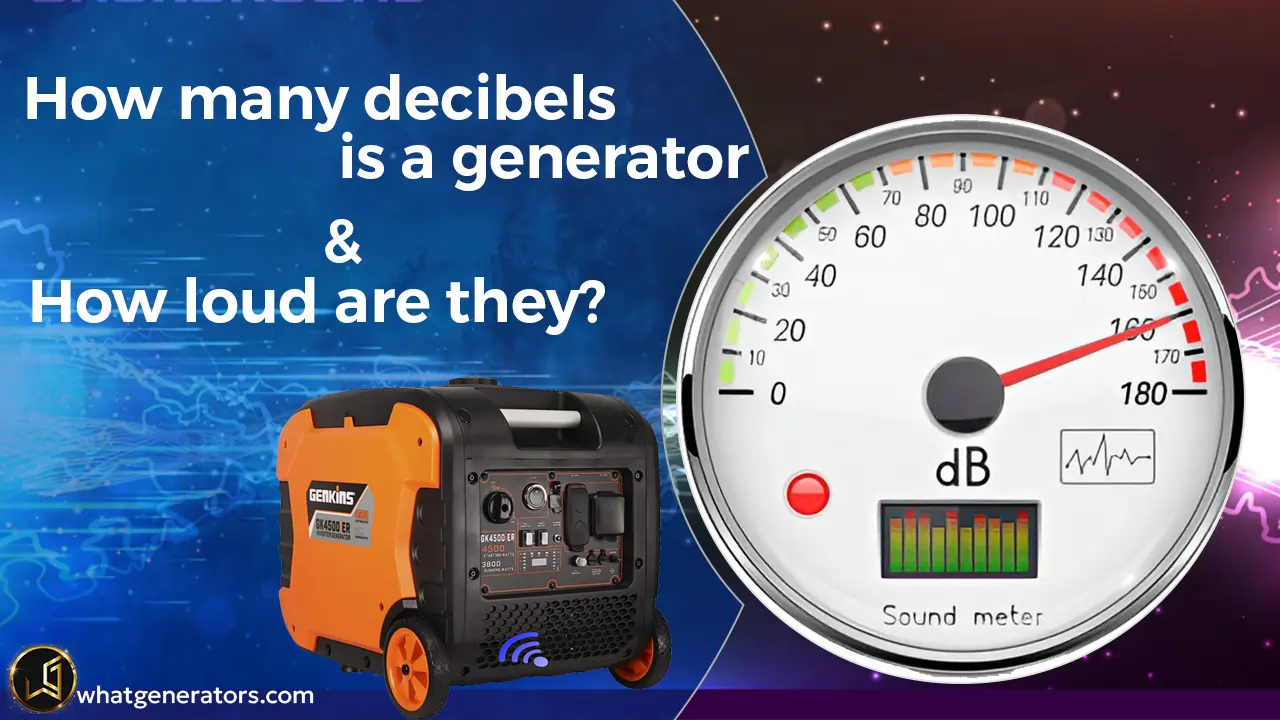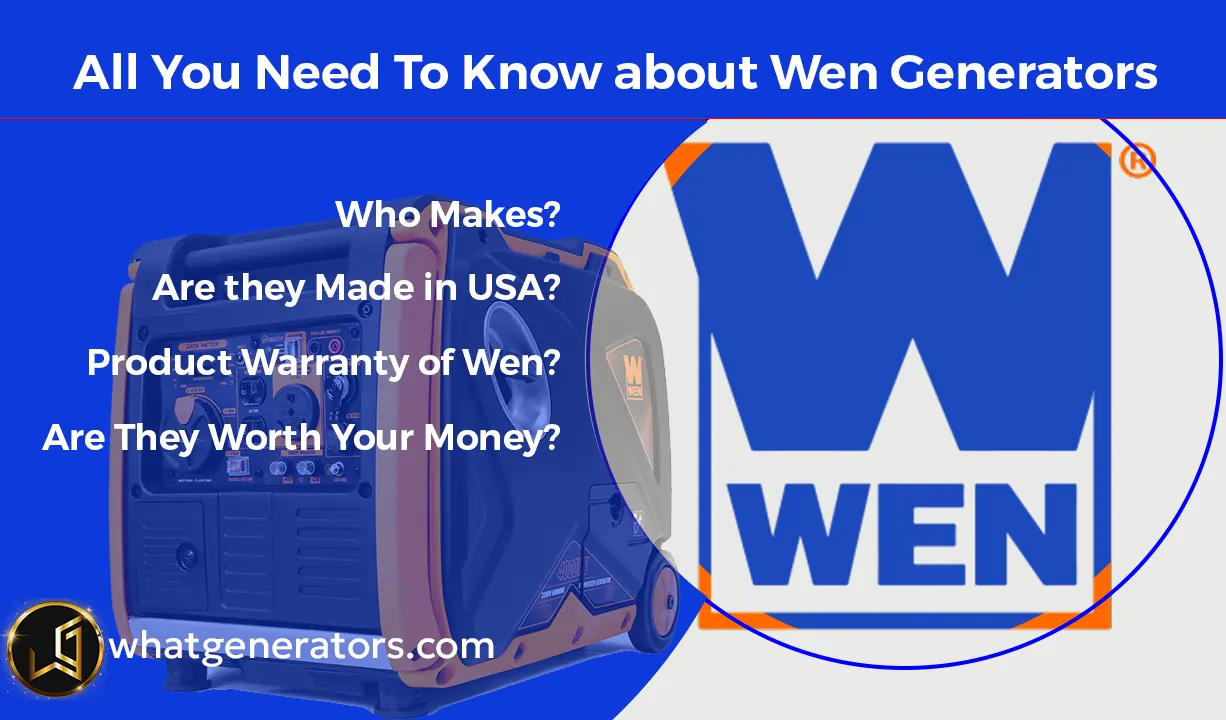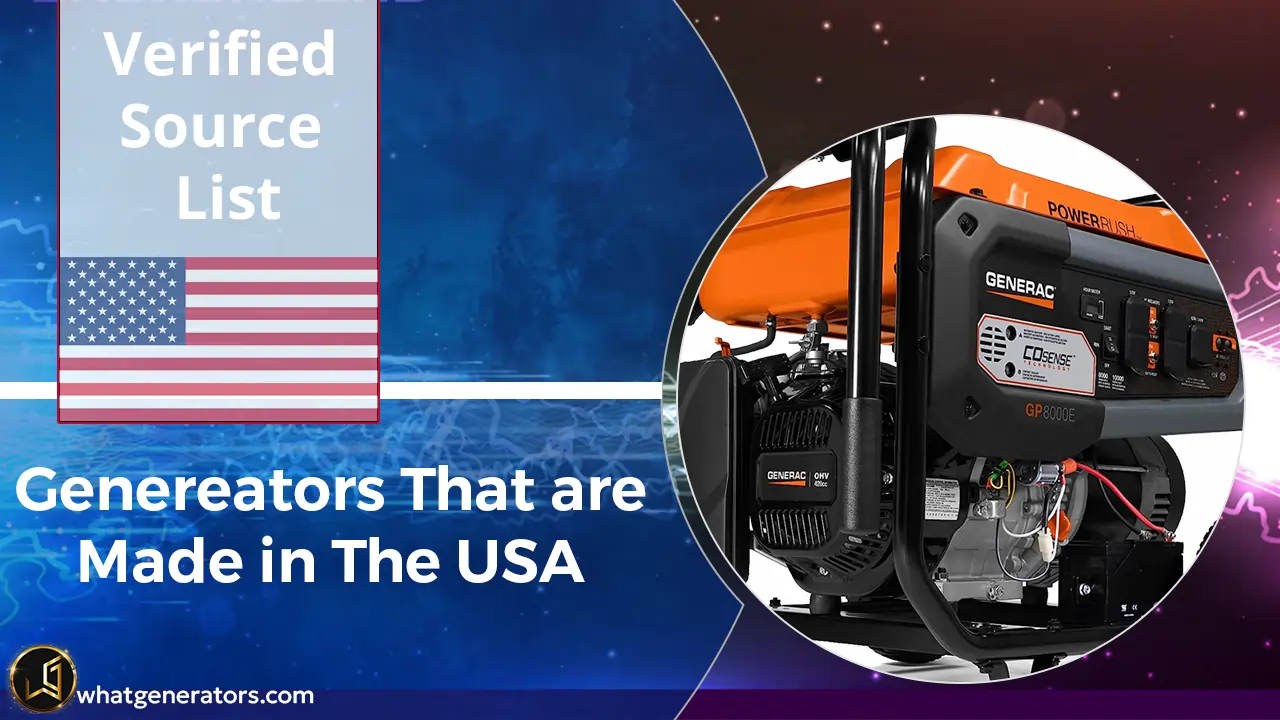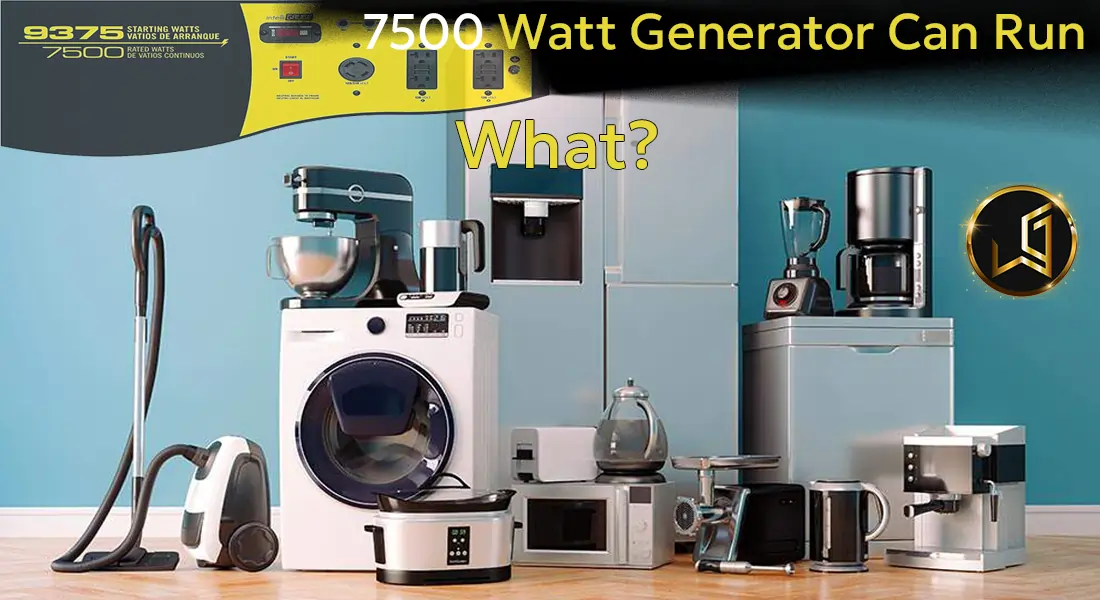
In case you’re wondering buy a 7500 W generator. You must have a question in your mind about the appliances what can a 7500 watt generator run? Don’t worry; most of our customers need to know what wattage they need for their requirements.
Here I will share the result of my 7 years of experience with you about the running capacity of a 7.5KVA generator, which can you light up during a power outage or outdoor use.
These are powerful generators that can provide electricity during power outages, camping trips, and outdoor events. But what can you run with this generator? This article will explore the different appliances and devices that a 7500-watt generator can power up.
Long in Short:
A 7500-watt generator is a powerful machine it has the capability to support a wide range of household appliances and equipment, as well as RV or camping appliances. This includes the essentials such as a refrigerator with a freezer for storing food, a washing machine for laundry, a coffee maker and a microwave oven for preparing meals, and a TV for entertainment.
Additionally, electric water heaters and pressure cookers can also be powered by this generator, along with some useful tools such as a radial arm saw or a bench grinder. Overall, a 7500-watt generator is an excellent investment for anyone looking for a reliable power source for their home or outdoor activities.
Understanding the Capacity of a 7500-Watt Generator
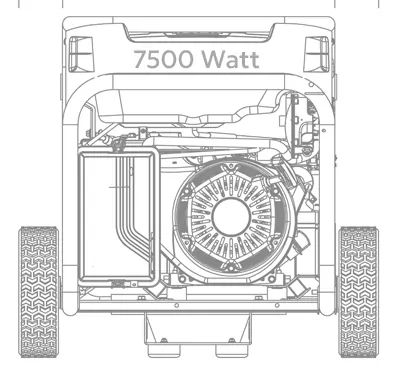
Are you interested in understanding the capacity of a 7500-watt generator? Sure thing, I can help with that. These are powerful generators that can handle your power needs during unexpected outages or when you’re off the grid. “watts” refers to the amount of power an appliance consumes per hour.
With a 7500-watt generator, you can power several appliances at once, including big ones like refrigerators, air conditioners, and water pumps, and smaller appliances like lights, TVs, and fans. Just remember that the actual capacity of a generator depends on various factors, like the type of fuel it uses, its altitude, and the number of appliances connected to it.
Always check the manufacturer’s guidelines before using your generator to be safe and efficient.
How a 7500 Watt Generator Works
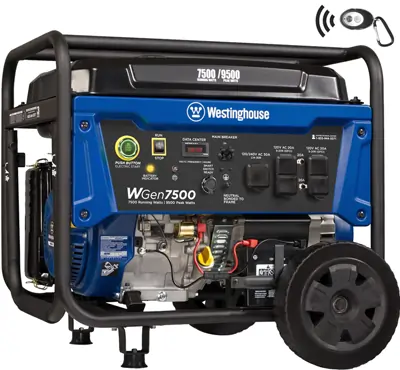
A 7500-watt generator works by converting mechanical energy into electrical energy. It has a fuel-powered engine that drives an alternator, which produces electrical power. The engine is typically fueled by gasoline or propane and is designed to run at a certain speed to produce the desired electrical output frequency.
The alternator consists of a rotor and stator, with the rotor being driven by the engine via a belt or gear assembly. As the rotor spins, it generates a magnetic field that passes through the stator winding, inducing an electrical current. This current is then sent through a voltage regulator, which ensures that the output voltage remains stable despite changes in load.
The generator includes a starter battery, fuel tank, and control panel. The control panel lets you start or stop the engine, adjust the output voltage, and monitor the generator’s performance.
Overall, a 7500-watt generator can provide enough power to run essential household appliances during a power outage or for outdoor activities where electricity is not readily available.
Difference between Running Watts and Starting Watts in Generators
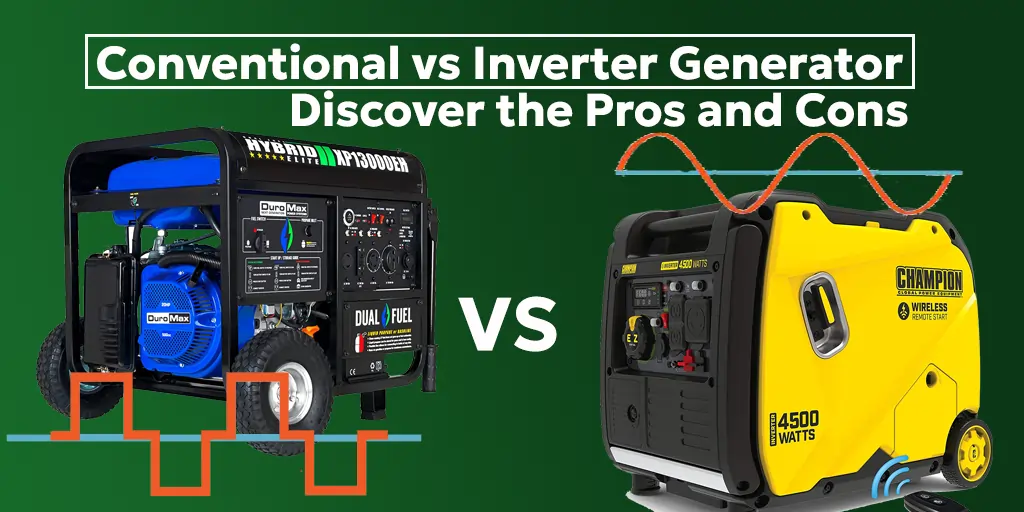
Running and starting watts are two important specifications you should consider when selecting a generator.
Running watts,
Also known as rated watts, refer to the amount of power a generator can consistently produce over an extended time. This is the continuous power output your generator can supply to run your appliances or devices without interruption. Running watts are typically lower than starting watts and are often listed in the generator’s specification sheet.
Starting watts
Also known as peak or surge watts, refer to the amount of power a generator can deliver for a short period, usually a few seconds, to start up electrical devices with motors such as refrigerators, air conditioners, and pumps. Due to their initial high power demand, these devices require more power to start up. Starting watts are higher than running watts and are listed in the generator’s specification sheet.
It is important to note that some appliances or devices may have a higher starting wattage requirement than their running wattage requirement. So, when choosing a generator, it’s important to ensure that it has enough starting watts to handle the initial load of your devices.
Appliances That Can Run on a 7500 Watt Generator
This section will list the different appliances and devices that a 7.5KVA generator can power up, including their wattage requirements.
20 Household Items That Can Run on a 7500 Watt Generator During a Power Outage
A 7500-watt generator has enough power to run many essential household appliances during a power outage. Here are ten basic household items that can be powered by a generator. These are much more appliances to run instead of what a 3500-watt generator can run.
- Refrigerator (600-800 watts)
- Freezer (500-700 watts)
- Electric range or oven (3000-4000 watts)
- Microwave oven (1000-1500 watts)
- Television (100-400 watts)
- Computer (200-400 watts)
- Lights (60-100 watts per bulb, depending on the type)
- Sump pump (600-800 watts)
- Well pump (1500-2500 watts)
- Central air conditioner (3000-5000 watts)
- Electric water heater (4500-5500 watts)
- Washing machine (1000-1200 watts)
- Clothes dryer (1800-5000 watts)
- Dishwasher (1200-2400 watts)
- Toaster (800-1500 watts)
- Coffee maker (800-1200 watts)
- Blender (300-1000 watts)
- Hair dryer (1200-1800 watts)
- Space heater (1000-1500 watts)
- Garage door opener (400-600 watts)
10 Power Tools That Can Run on a 7500 Watt Generator
A 7500-watt generator can also power a variety of power tools for DIY projects or professional use. Here are ten power tools that you can run on it:
- Circular saw (1200-1500 watts)
- Table saw (1500-3000 watts)
- Miter saw (1000-1800 watts)
- Drill press (600-1100 watts)
- Air compressor (1500-3500 watts)
- Angle grinder (1000-1500 watts)
- Welder (4000-6000 watts)
- Paint sprayer (700-1400 watts)
- Electric pressure washer (1200-1800 watts)
- Tile saw (1000-1500 watts)
Powering Your Outdoor Adventures: 10 Outdoor Equipment That Can Run on a 7500 Watt Generator
A 7.5 KVA generator can also power various outdoor equipment used for landscaping, gardening, and recreation. Here are ten outdoor equipment that you can run on it:
- Lawnmower (1000-2000 watts)
- Leaf blower (500-1000 watts)
- Hedge trimmer (400-800 watts)
- Chainsaw (1200-2200 watts)
- Electric log splitter (1500-2500 watts)
- Pole saw (600-1000 watts)
- Electric tiller (1000-1500 watts)
- Portable air conditioner (1000-2500 watts)
- RV air conditioner (1500-2000 watts)
- Bounce house blower (1150-1500 watts)
Tips for Using a 7.5 KVA Generator
When using a 7500W generator, it’s important to follow some basic tips to ensure safe and effective operation. By following the below tips, you can enjoy the many benefits of having a power generator while keeping yourself and others safe.
Maintenance Precautions
- Check the oil level before use: It’s important to check the oil level in your generator before you start it. Running the generator with low oil can cause serious damage to the engine.
- Use the right fuel: Make sure you use the right type of fuel recommended by the manufacturer. Using the wrong type of fuel can damage the engine or cause it to malfunction.
- Keep the generator dry: Make sure that the generator is kept in a dry area, away from any wet conditions. Water and electricity don’t mix, and moisture can cause serious damage to the generator’s electrical system.
- Follow safety guidelines: Always follow the safety guidelines provided by the manufacturer. This includes wearing protective gear like gloves and eye protection while operating the generator.
- Don’t overload the generator: Be careful not to overload the generator by plugging in too many appliances or devices at once. Overloading can cause the generator to malfunction or even cause a fire.
- Let the generator cool down: After using the generator, let it cool down before storing it away. This will prevent any damage caused by residual heat.
- Regular maintenance: Regular maintenance is essential to keep your generator running smoothly and efficiently. Follow the manufacturer’s recommended maintenance schedule to ensure proper care and upkeep of your generator.
Safety Precautions
When using a 7500-watt generator, it’s important to follow these safety precautions:
- Keep the generator outside and away from windows and doors.
- Use heavy-duty extension cords that are rated for outdoor use.
- Only connect the generator to your home’s electrical system if you have a transfer switch installed by a licensed electrician.
- Always turn off the generator before adding fuel or performing maintenance.
Assessing the Effectiveness of a 7500-Watt Generator for Your Power Requirements
When selecting a generator, one of the primary considerations is determining whether or not it will meet your power needs. A 7500W generator is a popular choice for many people due to its high power output capacity. However, before making a purchase decision, it’s important to assess whether this generator suits your specific requirements.
The first step in evaluating the adequacy of a generator is to determine your power needs. Consider the appliances and devices you want to power during an outage or other emergency. Please make a list of each item, noting its wattage requirement.
You can also use the online calculator to determine your required wattage: Cat Generator Official Calculator.
Add all of these wattage requirements together to get a total power requirement. Once you have determined your total power requirement, compare it to the rated output capacity of the generator. Generally, a 7500-watt generator can power most common household appliances such as refrigerators, freezers, air conditioners, and lighting systems.
It can also provide sufficient power for larger tools and equipment such as power saws, drills, and air compressors.
However, if you have more demanding power requirements, such as powering multiple large appliances simultaneously or running power-hungry equipment for extended periods, you may need more than a 7.5KVA generator. In such cases, consider a higher-output generator with a larger capacity.
Another factor to consider when assessing the suitability of a 7500-watt generator is its fuel efficiency and runtime. Generators typically have different fuel consumption rates based on their load capacity. A generator operating at or near its maximum output capacity will consume more fuel than one operating at a lower load capacity.
Therefore, it’s important to determine how long the generator can run on a full fuel tank while providing the required power output.
Calculating Required Wattage: A Guide to Determining Your Power Needs

Selecting the right generator for your power needs is crucial, and determining the required wattage is vital to this process. To do so, list all appliances and devices you plan to operate with the generator and note their corresponding wattage or amperage requirements.
Once you have this information, add up the total amount of power needed to use everything on your list, considering both starting and running wattage. It’s important to consider all devices’ starting wattage as some appliances require more power before settling into their normal operating levels. Furthermore, if you plan to run several high-wattage devices simultaneously, you’ll need a generator with a higher output capacity.
Another essential factor is whether you want to power your entire home or only crucial devices. If you’re going to power the basics, such as lights, small appliances, and refrigerators, you will need less wattage than someone who wants to power everything in their home.
When calculating the required wattage, it’s best to be conservative, and it’s always better to purchase a generator with slightly more capacity than you currently need. This approach ensures you can accommodate future power needs while providing peace of mind during an emergency.
FREQUENTLY ASKED QUESTIONS
Can a 7500-watt generator run a whole house?
The answer to this question depends on several factors, such as the size and power needs of your whole house and the capacity and capabilities of the specific 7500W generator in question.
Generally, a 7500-watt generator can provide enough power to run many essential appliances in a typical home during a power outage. For example, it may simultaneously power a refrigerator, some lights, a TV or radio, and a few small electronics.
However, due to its higher power requirements, it may only be able to power larger appliances such as an electric stove, central air conditioning unit, or a water heater at a time. Here are examples of capable and non-capable appliances that these generators can power:
Capable:
- Refrigerator
- Lights, TV/radio, and small electronics
- Portable electric stoves or hot plates
- Sump pumps
- Space heaters
- Computers and Internet equipment
Non-capable:
- Electric water heaters
- Large electric stoves or ovens
- Electric dryers
- Electrical washers
- Large central air conditioning units (over 3 tons or 36,000 BTUs)
- Electric furnaces
- Swimming pool pumps and heaters
- Electric vehicle chargers
Will a 7500-watt generator run my air conditioner?
It depends on the specific power requirements of your air conditioner. A 7500-watt generator can typically provide enough power to run a central air.
Let’s assume that the typical starting wattage for an air conditioner is around 3 times its running wattage. Here are some scenarios:
- Air conditioner A has a cooling capacity of 24,000 BTUs (2 tons) and requires 2400 running watts and 7200 starting watts. In this case, a 7.5KVA generator could not start or run this air conditioner.
- Air conditioner B has a cooling capacity of 36,000 BTUs (3 tons) and requires 3000 running watts and 9000 starting watts. In this case, a 7.5KVA generator can run this air conditioner with a surge capacity of at least 9000 watts.
Conclusion:
A 7500-watt generator is a powerful device that can provide electricity during power outages, camping trips, and outdoor events.
It can power up most basic household appliances, power tools, and outdoor equipment. However, following safety precautions and performing regular maintenance is important to ensure the generator runs smoothly.
FAQ:
What size breaker do I need for a 7500-watt generator?
The size of the breaker you need for a 7500-watt generator will depend on several factors, including the voltage of your generator and the amperage of the circuit it will be connected to.
Assuming that your 7500-watt generator is a 240-volt unit, you would need a double pole breaker rated for 30 amps to connect it to your home’s electrical panel. This is based on Ohm’s Law, which states that Watts = Volts x Amps. In this case, 7500 Watts divided by 240 Volts equals 31.3 Amps, so a double pole 30 amp breaker would be appropriate.



